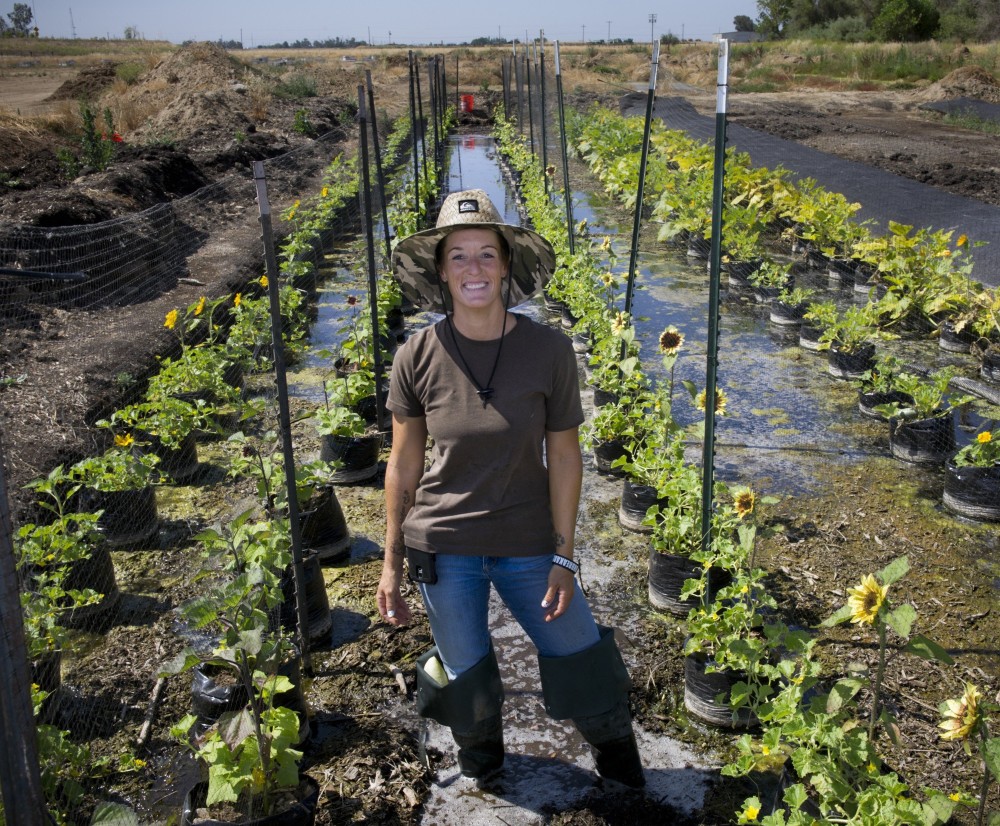By Connie Group
American News, Aberdeen, S.D.
Passion for agriculture comes through clearly when Julie Borlaug takes the stage.
buy cialis black generic buy cialis black online no prescription
And at the recent Executive Women in Agriculture conference in Chicago, she spoke frankly about her grandfather.
“My grandfather was successful because of my grandmother,” she said. “She helped him bring his research to a human level.”
As the winner of the World Peace Prize, Norman Borlaug worked tirelessly to develop strains of wheat to help feed millions. That was phenomenal. But Julie Borlaug said her grandfather had trouble bringing what he did to an understandable level. She said that women are needed to share the importance of agriculture.
Developing nations
In her work with external relations for the Norman Borlaug Institute for International Agriculture, Julie Borlaug sees the same thing in dealing with people in developing countries. She works a lot in the private and public sectors with the U.S. Department of Agriculture, international government, nongovernmental agencies and major ag companies and sees instances where communication works and instances where it doesn’t. Borlaug said her group is seeing success in developing countries as women become empowered.
“Sometimes, women are their own worst enemy,” Borlaug said. She works to “encourage young women who want to go into agriculture.
We have to train our daughters and our sons to have a different mindset. We have to instill values in our teenage daughters and encourage them to speak up for agriculture.”
As the institute works in countries such as Rwanda and Uganda, efforts are most successful with teaching new ways to the women in those countries.
Borlaug shared examples of empowering women, harnessing their drive to succeed. The group has been active in Rwanda after the genocide. Women are the driving force behind much of the rebuilding of the country as they seek to make homes for their families.
Through the program, the women were encouraged to plant seeds for coffee plants. After cultivating and harvesting the crop, they were assisted in marketing the crop.
One woman named Agnes was instrumental in getting a road built to take the crops to market. By leading in such a way, the whole village benefited.
“We need tens of thousands more like her,” Borlaug said.
In Uganda, Borlaug met an inspirational farmer named Emma Naluyima. Borlaug arranged for Naluyima to speak at the World Food Prize event this last year. Her life shows others the promise and capabilities of a woman. Naluyima has turned one hectare of land into a money-maker because she didn’t want to be dependent on her husband for funds. She now brings in $100,000 in income on her farm every year. Most importantly, she extends her knowledge into the community, teaching young people positive traits and how to be successful producers.
“These are examples of the changing face of ag and the huge challenges that lay ahead of us,” Borlaug said. “Fear of change is the greatest obstacle to progress, especially in developing countries.”
Big task
Borlaug asked, “Can we feed 9 billion people? It is possible if agriculture is allowed to use technology. Women can pave the way in communicating.”
In talking to those who attack modern agriculture, Borlaug said it’s important to acknowledge concerns and then share the emotional aspects of how and why the technology provides ways to improve production with people who haven’t been on a farm. By using genetically modified organisms, today’s seeds provide ways to conserve water and use fewer chemicals, which benefits everybody.
“Scientists like my grandfather were great at science, but not at communicating,” Borlaug said. “They are better at doing science than talking about it. My grandfather gave the worst description of what is a genetically modified organism, GMO, starting with saying it’s not witchcraft.”
“Why would you start a statement with a negative?” Borlaug asked. “We used to think we could win the day with science alone and scientists doing the talking, but the reality is we need to change the way we talk about technology in agriculture.”
In most cases, women make many of the decisions about the food purchased for their families. Since it’s such a personal issue for consumers, emotions are involved. Borlaug said that women communicate a lot better than men, so they should take part in communicating the need for improved agricultural technology.
“Women can get things done,” Borlaug said. “We have the power to step into leadership roles. I challenge you to take it to the public and move agriculture forward.”














































































































































































































































































































































































